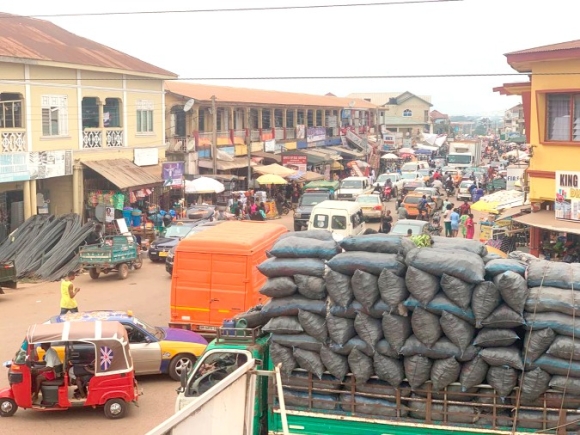
Travelling abroad — A family tradition in Berekum
Travelling abroad for greener pastures is a very common feature in towns and villages across the country.
The practice also permeates many families in the country. However, among the people of Berekum in the Bono Region, the urge for members of families to relocate abroad has become a train.
The practice seems so embedded that families had to mobilise funds as seed money to facilitate a travelling opportunity.
Although many households in the Bono, Bono East and Ahafo regions had at least a relation living abroad, particularly in Europe, Berekum’s obsession is such that there are people who facilitate travels abroad so the beneficiaries would remit their needs.
Aside from families contributing financially, travellers had at least three to five years to work after settling abroad to create the opportunity for others to follow.
A native, Yaw Amponsa said the ultimate object for the journey abroad by the people of Berekum was to buy an expensive vehicle, put up houses for their parents and bring some quality drinks.
During a short stay in the town in August, The Mirror also observed that there were many associations of Berekum indigenes abroad who annually mobilised to support health facilities with medical equipment.
Another native, Amankona Safo, told The Mirror during the visit that families would ensure that beneficiaries who got the chance to travel do not come for their girlfriends as it happened in other areas.
Rather, he said such people must work it out for their direct siblings or members of their family to join them first, before any other person.

Burger status
The Akyempimhene of Berekum, Nana Baffour Gyawu, confirming this, said the craving of the people, especially the youth, to travel abroad had more or less culminated into a culture, aside from the fact that many of them embarked on the journey due to the lack of jobs in the area.
Nana Gyawu said "one cannot find a Europe-based native in every household but it is not rare in Berekum."
In that regard, Nana Gyawu said it became obligatory for the next immediate traveller to return home to facilitate the travel of another member of the family.
He said Germany was one of the places the indigenes loved to travel to, explaining that the " burger" status in Berekum was characterised by the building of mansions, not only to beautify the town but also as a reward to parents for their sacrifices towards them (the burgers).
Nana Gyawu praised the burgers for contributing to the development of Berekum through the remittances they sent and for beautifying the town by constructing buildings with very modern architectural designs.
He added that the habit had also widely expanded the town.
One of the benefits of the practice of being each other’s keeper through the travel opportunities, according to Nana Gyawu, was that "it has strengthened the bond among and between families."
"Normally, it is the homes they built and in sending their siblings abroad. This has helped the families a lot," he told The Mirror.
Nana Gyawu commended women, especially mothers in the area, for ensuring that this age-old tradition continued.

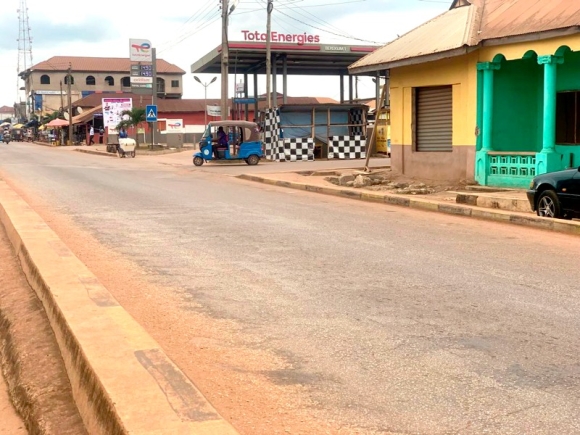
Good business for taxi drivers and momo vendors
The Mirror's interaction with residents within the Berekum traditional council reve
aled that the practice had created booming businesses for taxi drivers and mobile money vendors.
It was also very common to see landlords offer free accommodation to visitors in Berekum while some tenants also stayed in some houses without contributing to utility bills.
A mobile money vendor, King, who said he migrated from Kumasi to Berekum in 2019, told The Mirror that the mobile money business was very lucrative in the area because of the number of daily withdrawals.
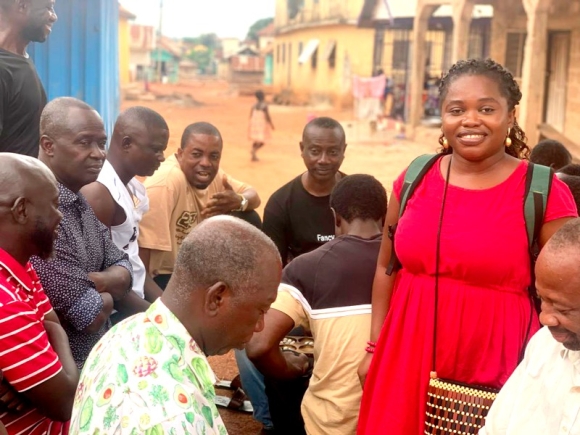
“Some customers even borrowed money from me in the form of a loan and refunded with interest when their monthly stipends from abroad dropped," he said.
Another momo vendor, Israel Biney, said he had not paid his utility bills for five years because his landlady had five of his six children living abroad.
He said the landlady was well-to-do and had told him she didn't need his contribution to utility bills.
Visits
Many homes, markets and draught-playing spots The Mirror visited boasted of living in houses built by their relatives abroad.
Some also touted how their sons had sent other non-family members abroad to fulfil what had become a culture in Berekum.
A Berekum indigene, Kofi Isaac, said there were uncountable numbers of his father's offspring abroad. So in his view, "there is no hardship in Berekum."
"Many people have no proper jobs but at the end of the month, they are remitted with an amount higher than a salaried worker. Everyone is a chairman in Berekum," he said with laughter.
Sabronomanhene's Adontenhene, Nana Akwasi Owusu, said 18 of his siblings lived in America and five of his children lived abroad.
For Highlife Musician C.S.T Amankwaa, the “burger status” of the natives had influenced the lucrative nature of buying and selling business activities in the town.
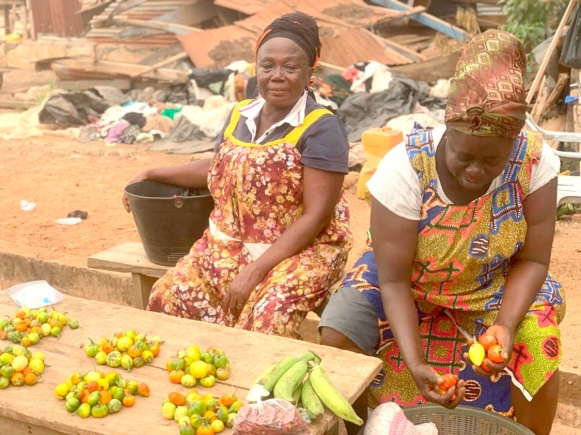
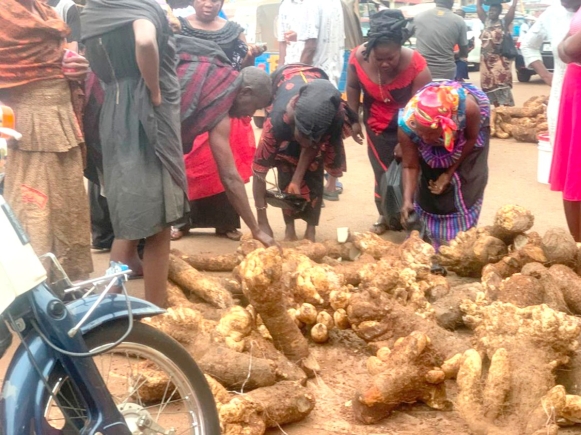
Writer’s email address:
